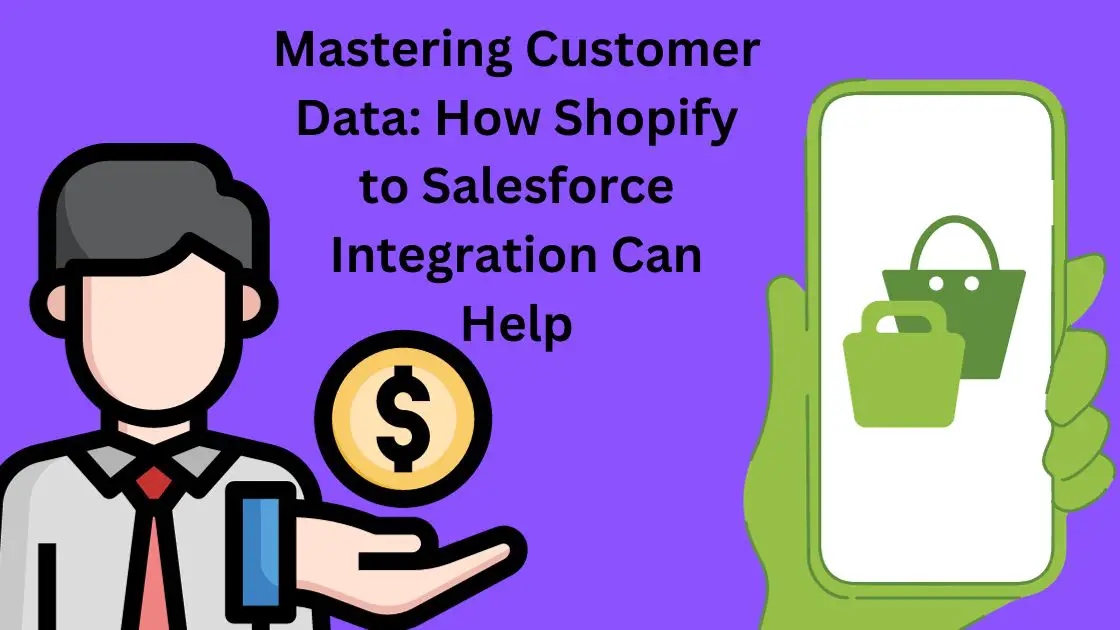In the era where data is considered the ‘new oil,’ understanding and mastering customer data has become an imperative for businesses of all sizes. A strategic blend of Salesforce and Shopify is rapidly becoming the go-to solution for e-commerce platforms looking to enhance their Customer Relationship Management (CRM). But how exactly can a Salesforce Shopify integration help businesses master their customer data? This article aims to shed light on the intricate details.
A Deep Dive into Customer Data Management
What Is Customer Data?
Customer data refers to information collected about consumers, which can include anything from personal details to shopping behaviors. This data is invaluable for business planning, decision-making, and especially for creating personalized customer experiences.
Importance of Effective Customer Data Management
Effectively managing customer data can result in more targeted marketing strategies, improved customer service, and increased sales. It can also help in anticipating market trends and understanding customer needs more accurately.
The Mechanics of Salesforce Shopify Integration
Types of Customer Data to Sync
Typically, data such as customer information, order history, and product details are synced from Shopify to Salesforce. This ensures that all departments within a business have access to the most up-to-date and comprehensive information.
Real-time vs. Scheduled Syncing
Most Salesforce Shopify integration solutions offer two types of data syncing: real-time and scheduled. Real-time syncing is immediate but might be resource-intensive. Scheduled syncing, however, allows businesses to set up a timetable for data transfer, which may be less taxing on system resources.
Key Benefits of Integration
Unified Customer View
With data spread across multiple platforms, achieving a unified customer view is challenging. Integrating Salesforce and Shopify helps consolidate this data into a single dashboard, offering an unparalleled 360-degree view of each customer.
Enhanced Personalization
Armed with detailed customer profiles, businesses can create highly personalized marketing campaigns, individualized product recommendations, and tailor-made customer service experiences.
Automated Workflows
Integration allows for the automation of various tasks such as updating customer information or triggering marketing campaigns based on customer behavior, which would otherwise be time-consuming and prone to human error.
Improved Decision-Making
The analytics tools available through Salesforce can help businesses make data-driven decisions. By analyzing patterns and trends in the customer data from Shopify, businesses can strategize more effectively.
Pitfalls to Avoid During Integration
Data Inconsistency
To ensure that the integration serves its purpose, maintaining data consistency across both platforms is crucial. This requires regular monitoring and occasional data cleansing.
Security Concerns
Customer data is sensitive, and mishandling it could lead to serious repercussions including legal troubles. It is essential to ensure that the integration is secure and complies with data protection laws.
Take Your Business to the Next Level with PowerSync
When it comes to seamless Shopify to Salesforce integration, few providers can match the proficiency and reliability of PowerSync. They offer real-time data synchronization, high-level customization, and excellent customer support, making them an ideal choice for any business looking to master their customer data. For more information, you can visitPowerSync.
Conclusion
mastering customer data is an achievable goal with the right tools and strategies. Salesforce and Shopify integration offers businesses a robust and efficient way to manage, analyze, and utilize their customer data for better decision-making and enhanced customer satisfaction. If you’re looking to make the most out of your customer data, PowerSync is the go-to solution for your integration needs.
































